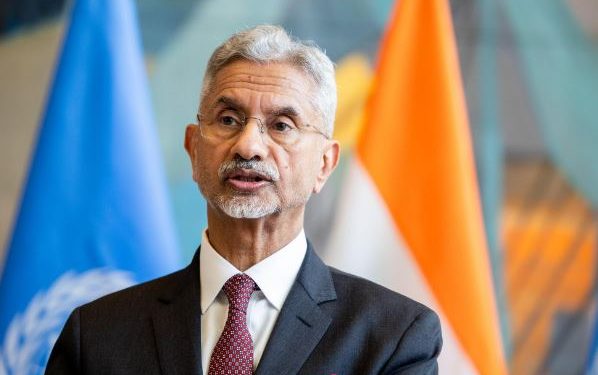New York: External Affairs Minister S Jaishankar has said that today’s changing world requires a global workforce, stressing that nations cannot escape the reality that demands for a global workforce cannot be met in many countries due to national demographics.
His remarks come amid trade and tariff challenges, as well as President Donald Trump’s hardline stance on immigration, including a new $100,000 fee on H-1B visas that largely affects Indian professionals who make up the majority of beneficiaries of these temporary work visas.
Addressing the event ‘At the Heart of Development: Aid, Trade, and Technology’ hosted by the Observer Research Foundation (ORF) on the margins of the UN General Assembly session Wednesday, Jaishankar called for the creation of a more acceptable, contemporary, efficient model of a global workforce, which can then be located in a distributed, global workplace.
“Where that global workforce is to be housed and located may be a matter of political debate. But there’s no getting away. If you look at demand and you look at demographics, demands cannot be met in many countries purely out of national demographics,” he said.
“This is a reality. You cannot run away from this reality. So how do we create a more acceptable, contemporary, efficient model of a global workforce, which is then located in a distributed, global workplace? I think this is a very big question today which the international economy has to address,” he said.
“We will see, as part of this re-engineered world, new, more different trade arrangements between countries, countries which will make decisions which they may not have made in other circumstances, countries which today will feel the desire, sometimes even the compulsion, to have new partners and new regions,” Jaishankar said.
For all the imponderables and uncertainties, eventually trade does find a way, he said, asserting that it is “easier to trade today” for physical and digital reasons, as there are better roads, shipping and much smoother trade interfaces than ever in human existence.
“So for all the obstacles and complications that may arise, I also think they will be countered in some ways or mitigated in some ways by what will happen in the great domain,” he said.
Jaishankar said that technology-wise, trade-wise, connectivity-wise, workplace-wise, “we are going to end up in a very different world in a very short term.”
In today’s “very turbulent” atmosphere, it is important particularly for large countries to build capacities to be more self-reliant, he said, asserting that it is “very much” the focus in India.
Jaishankar pointed out that multi-polarity is not something that would happen, but it would have to be built by building national capacities.
“When you build national capacities and have national experiences, some of it is transposable to other people who may relate to it,” he said, citing the example of India’s Digital Public Infrastructure (DPI).
“There are many other societies that find the Indian model of DPI frankly far more absorbable, relevant, transposable than a European model or an American model of how to run a more digital life,” he said.
He also said that a year ago, and certainly a few months ago, it was very clear that the world was moving towards much greater unpredictability, volatility, and uncertainty.
“When you predict something like that, people say, okay, so you predict what that means. Now, by the very definition of unpredictability, you don’t know what you’re heading towards. It’s not an extrapolation of what has been there in the past. Clearly, it’s disruptive,” he said.
He added that people felt that somebody’s second and first terms would be different, in an apparent reference to Trump’s second term, during which the US President has imposed tariffs on dozens of countries, among other things.
“But what we are seeing is – terms are different. Times are different. A few months make a difference. A few weeks make a difference,” he said.
“So actually it’s really quite the experience for the world to go through this level of policy changes, of practical impact of that, and also the fact that so much of it is done so publicly, it’s played out in the full glare of the spotlight,” he said.
Jaishankar said that over the last three to four years, the world was worrying about supply chains and sources of production. The decision then to de-risk the world, hedging against uncertainties, meant having more production centres and more resilient and redundant supply chains.
“But now we also have to protect ourselves against the uncertainty of market access. So you worry about over-dependence on markets just as you worry about over-dependence on supplies or over-dependence on connectivity,” he said.
“In a sense, almost the entire economic chain has become far more riskier or far more difficult to assume in many ways,” he said.
Today, the central proposition in diplomacy is probably how “do you de-risk, how do you hedge, how do you become more resilient, how do you safeguard yourself against unforeseen contingencies, which again I emphasise by definition are unforeseen, and really build policy and plans around that. That’s a very big challenge for the entire world,” he said.
PTI






































